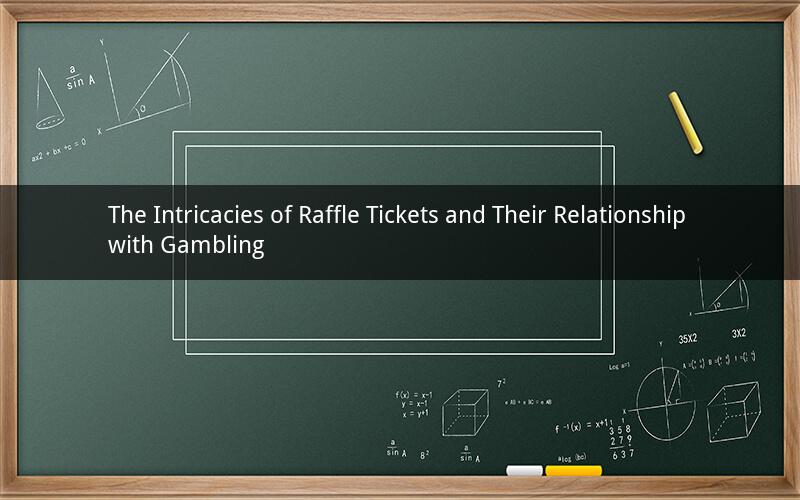
Raffle tickets have long been a staple in various events, from charity galas to school fairs. They offer a unique blend of excitement and anticipation, as participants eagerly await the possibility of winning prizes. However, the question of whether raffle tickets constitute gambling has sparked considerable debate. This article delves into the nuances surrounding this topic, examining the definition of gambling, the characteristics of raffle tickets, and the legal implications involved.
Understanding Gambling
To determine whether raffle tickets are considered gambling, it is essential to first understand the definition of gambling. Gambling, at its core, involves betting something of value on an event with an uncertain outcome, with the primary intent of winning additional money or goods. This definition encompasses various forms of betting, including casinos, sports betting, and lottery games.
Characteristics of Raffle Tickets
Raffle tickets share several characteristics with gambling activities, such as betting on an uncertain outcome and the potential to win prizes. However, there are distinct differences that set raffle tickets apart from traditional gambling.
1. Legal Framework: Raffle tickets are often regulated by specific laws and guidelines, which differ from country to country. In many jurisdictions, raffle events must be licensed and comply with certain requirements to ensure fairness and prevent fraud.
2. Participation: Unlike traditional gambling, raffle participants do not engage in betting against others. Instead, they purchase tickets with the hope of winning prizes, which are typically predetermined.
3. Prize Distribution: Raffle prizes are usually distributed at a predetermined time, such as the end of an event or a specific date. This differs from gambling, where winners are determined in real-time.
Legal Implications
The legal implications of raffle tickets as gambling vary depending on the jurisdiction. In some countries, raffle tickets are explicitly classified as gambling, while others may have specific exemptions for certain types of raffle events.
1. United States: In the United States, the classification of raffle tickets as gambling varies by state. Some states, such as California and New York, have specific laws governing raffle events, while others leave it up to local jurisdictions.
2. United Kingdom: In the United Kingdom, raffle tickets are not considered gambling under the Gambling Act of 2005. However, organizers must comply with certain regulations, such as obtaining a license if the prize exceeds a certain value.
3. Australia: In Australia, raffle tickets are not classified as gambling under the Interactive Gambling Act of 2001. However, organizers must adhere to specific guidelines, such as ensuring that the event is not conducted in a manner that promotes gambling.
FAQs
1. Q: Can raffle tickets be considered gambling if they are sold for a specific cause?
A: The classification of raffle tickets as gambling depends on the jurisdiction and the specific regulations in place. In some cases, raffle tickets sold for charitable causes may be exempt from gambling laws.
2. Q: Is it legal to sell raffle tickets online?
A: The legality of selling raffle tickets online varies by country and state. In some jurisdictions, online raffle sales are permitted, while others may have stricter regulations or ban such activities altogether.
3. Q: Can raffle tickets be used as a form of fundraising for a school?
A: Yes, raffle tickets can be used as a form of fundraising for schools, provided that the event complies with the relevant laws and regulations in the jurisdiction.
4. Q: Are there any differences between a raffle and a lottery?
A: While both involve the sale of tickets for a chance to win prizes, the primary difference lies in the nature of the event. Raffles typically have a predetermined date for prize distribution, while lotteries may have ongoing draws.
5. Q: Can a person be charged with gambling if they purchase a raffle ticket?
A: Generally, purchasing a raffle ticket is not considered gambling. However, if a person engages in fraudulent activities or violates specific gambling laws, they may face legal consequences.
In conclusion, the question of whether raffle tickets are gambling is a complex one, as it depends on various factors, including the legal framework, the nature of the event, and the intentions of the organizers. While raffle tickets share some similarities with gambling, their unique characteristics and legal implications distinguish them from traditional forms of betting. Understanding these nuances is crucial for organizers, participants, and authorities to ensure compliance with the law and promote fair and responsible practices.